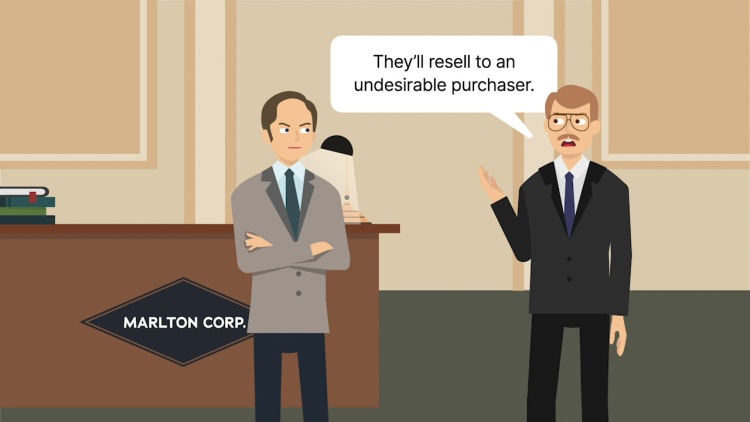Wolf v. Marlton Corp.
New Jersey Superior Court, Appellate Division
154 A.2d 625, 57 N.J. Super. 278 (1959)

- Written by Sean Carroll, JD
Facts
The Wolfs (plaintiffs) contracted to purchase a house that Marlton Corp. (defendant) was to build in its residential development. The Wolfs put down a deposit of $2,450, which Marlton was entitled to keep under the terms of the contract if the Wolfs failed to make additional payments on the house. During construction, the Wolfs ran into marital troubles and told their lawyer that they did not want to complete the sale. Accordingly, the Wolfs’ lawyer told Martin Field of Marlton that if he did not agree to a settlement and let the Wolfs out of the contract, the Wolfs would resell the house “to a purchaser who would be undesirable in [Marlton’s] tract.” Field testified: “[the lawyer stated] that if we did not accept his offer it would be the sorriest move that I ever made in my building career. I accepted it as a threat, and I felt that at this point it was impossible to go ahead and continue with this thing.” As a result of this conversation with the Wolfs’ lawyer, Marlton informed the Wolfs that the sale would not be consummated on account of the Wolfs’ material breach, and because of that breach, Marlton was retaining the down payment. The Wolfs brought suit for breach of contract, claiming that they were always ready, willing, and able to perform under the contract. The trial court held that Marlton refused to perform and found in favor of the Wolfs. Marlton appealed.
Rule of Law
Issue
Holding and Reasoning (Freund, J.)
What to do next…
Here's why 911,000 law students have relied on our case briefs:
- Written by law professors and practitioners, not other law students. 47,100 briefs, keyed to 997 casebooks. Top-notch customer support.
- The right amount of information, includes the facts, issues, rule of law, holding and reasoning, and any concurrences and dissents.
- Access in your classes, works on your mobile and tablet. Massive library of related video lessons and high quality multiple-choice questions.
- Easy to use, uniform format for every case brief. Written in plain English, not in legalese. Our briefs summarize and simplify; they don’t just repeat the court’s language.





